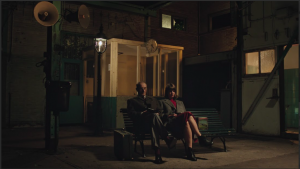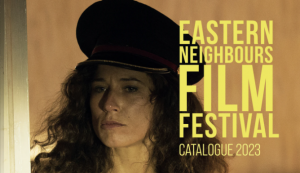What’s up in Slovak Cinema? A conversation with Monika Lostakova

Monika Lošťáková
So Monika, what’s up in Slovak cinema?
Slovak cinema is young, but in recent years it has experienced an “intense boom” – there are many young, interesting authors, and genre experiments. The industry has also opened up to foreign countries, and several films are created as co-productions – not only as majority co-productions, but also minority co-productions. At the same time, many Slovak films premiered at major festivals such as Venice (107 Mothers, Victim, Photophobia) or Berlinale (Notes from Eremocene, Servants, Mimi).
What makes Slovak cinema unique?
If we talk about the uniqueness of Slovak film, I would definitely say that Slovak film is connected to quality psychological dramas and documentaries. We can find these tendencies in the Czechoslovak New Wave, and this trend continues with a young generation of filmmakers (films such as Victim, By a Sharp Knife, Nightsiren, 107 Mothers, Little Harbour, Plastic Symphony, Good Death etc.).
Which new Slovak filmmakers are you most excited to see develop further?
The upcoming young generation is very interesting and worthy of attention. Among the greatest talents at the moment is the director Michal Blaško, whose short film Atlantis 2003 (2017) was selected by the Cinefondation in Cannes. His debut feature film Victim (2022) premiered in Venice, and the miniseries Suspicion (2022) at the Berlinale. He is currently preparing a new miniseries and two feature-length fiction films. Tereza Nvotová is certainly among other authors worthy of attention. Her directorial debut Filthy (2017) premiered at the IFF Rotterdam, her second film Nightsiren (2022) premiered at the IFF Locarno and won the award for best feature film at the Sitges Film Festival. Regarding documentary films, I would definitely like to mention Viera Čakányová, whose work is very specific and her documentary essays would hardly find something comparable in other Slovak documentaries (Notes from Eremocene, FREM), as well as Barbora Sliepková (Lines), and Vera Lacková (How I Became a Partisan). Other up-and-coming filmmakers worthy of attention include Alica Bednáriková, whose short film Liquid Bread can be seen by the Dutch audience in a selection during the Eastern Neighbors Film Festival.
What would you say are the leading themes and perspectives explored in new Slovak films at the moment?
In recent years, thanks to some kind of rebirth of Slovak film, Slovak cinema has been diverse in both fiction films and documentary films. There are psychological dramas, which are predominant, as well as historical films (The Chambermaid, The Ballad of Piargy), comedies (Goldilocks and the Glorious Losers, Invalid), films for the younger generation (Little Harbour, Mimi). Many filmmakers are experimenting with the form of documentary – Viera Čakányová, Peter Kerekes, Barbora Sliepková, Miro Remo. I think we can be very happy that Slovak cinema has been very diverse in recent years and also attracts Slovak viewers.
What is one Slovak film you think everyone should see?
This is a very tricky question. As I prefer documentary films, I will pick one that is directed by a new generation of filmmakers: Barbora Sliepková – Lines. It is a fascinating visual essay that refers to urban symphonies. A film that demands to be see on a big screen. On the other hand, if I think about the past, and Slovak films that have had an impact on me personally, I will definitely pick The Boxer and the Death by Peter Solan – a strong psychological drama set in a concentration camp. A perfect portrayal of characters and a unique atmosphere. The film does not lose its quality even after more than 60 years. The Boxer and the Death was created during the “golden years” of Slovak and Czech film in the 1960s, called the Czechoslovakian New Wave.
Interview by Nika Cimpersek Bukinac
About Monika:
Monika works as a program coordinator at IFF FEBIOFEST Bratislava (since 2016) and 4 elements (since 2018), as well as the Visegrad Film Forum educational event (since 2014). In nutprodukcia production company, where she has been working from 2015, she focuses on developing and producing documentaries, creating distribution strategies and preparing funding applications. Since 2017, Monika has been working also at Super film, where she mainly produces documentary films, TV series (Investigators, Design SK, Space Cowboy) or minority co-productions (Ordinary Failures). She constantly advances her skills by attending many workshops and festivals. She is an IDFAcademy and IDFA Young Producers 2021 alumni and also East West Talent Lab 2022 alumni.









